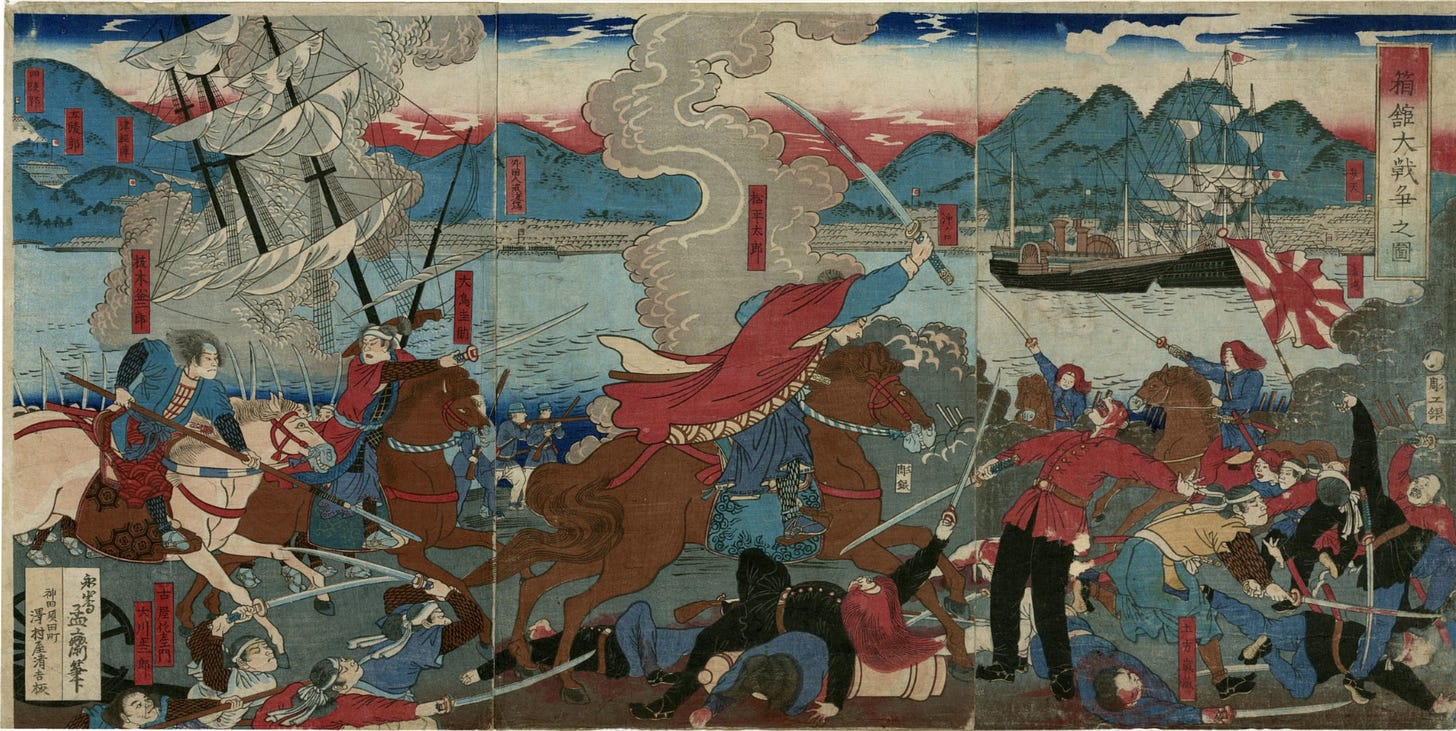World roundup: June 27 2025
Stories from Israel-Palestine, Cambodia, Somalia, and elsewhere
TODAY IN HISTORY
June 27, 1658: An invading Spanish army is defeated by a slightly larger English force in the Battle of Rio Nuevo, the largest battle ever to take place on Jamaica. This was the second Spanish attempt to reclaim the island, which had been captured by English forces commanded by Sir William Penn in 1655. The battle began on June 25 and the English spent two days bombarding a makeshift Spanish fortress before its occupants attempted a breakout in desperation. Of around 560 Spanish personnel at the start of the battle, some 300 were killed or wounded and another 150 taken prisoner. Spain finally gave up its claim on Jamaica in the 1670 Treaty of Madrid.
June 27, 1869: The remaining forces still loyal to the Tokugawa Shogunate are defeated by Meiji forces at the Battle of Hakodate, in southern Hokkaidō. After suffering a series of defeats that included the loss of Edo (renamed Tokyo), the Tokugawa remnants had fashioned themselves into a statelet called the “Republic of Ezo” (Ezo being another name for Hokkaidō) in late 1868 and, aided by several French military officers, focused their defensive preparations on the island’s southern Hakodate peninsula. Meiji forces landed on the island in April and were eventually able to force the rebels to surrender. The battle effectively ended the 1868-1869 Boshin War with the imperial/Meiji faction victorious.

MIDDLE EAST
SYRIA
The Arab Center’s Gregory Aftandilian discusses the SDF’s efforts to weather Syria’s rapidly changing political landscape:
Syrian Kurds under the leadership of the Syrian Democratic Forces (SDF) and the entity that they created—the Democratic Autonomous Administration of North and East Syria (DAANES)—face new realities that have put their experiment in autonomy in serious doubt. Although in March 2025 they signed an agreement with the new Syrian regime that preserves some Kurdish rights, and are in discussions with Turkey to avert a Turkish military incursion, Syrian Kurds are understandably nervous about their future. This is especially because their main protector, the United States, is in the process of withdrawing its troops from their region. Washington is trying to reassure these Kurds, who were its main Syrian ally in the fight against the so-called Islamic State (IS) over the past decade. But it is increasingly evident that Kurdish interests are being overtaken by the larger US goal of fostering ties with Syria’s new regime, likely with the goal of encouraging it to establish relations with Israel.


